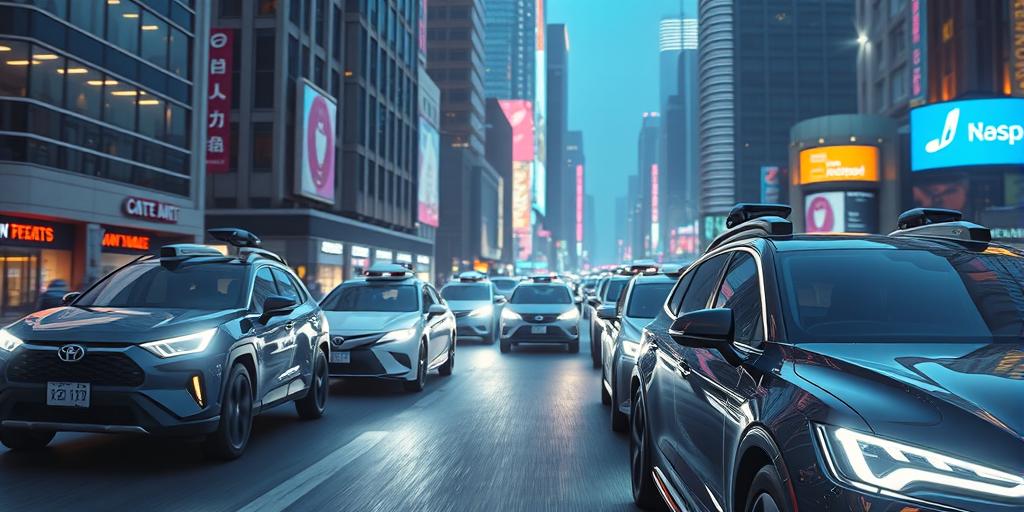The Evolution of AI: From Chess Games to Self-Driving Cars
Have you ever wondered about the incredible journey of artificial intelligence? From humble beginnings playing chess to now revolutionizing self-driving cars, AI’s evolution is nothing short of astonishing! Prepare to be amazed as we delve into this captivating technological odyssey, uncovering the milestones, breakthroughs, and the mind-boggling potential that lies ahead. Get ready to explore the past, present, and future of this groundbreaking field that is rapidly changing our world.
The Dawn of AI: From Chess to Complex Calculations
The seeds of AI were sown decades ago, with early pioneers envisioning machines capable of intelligent behavior. One of the most iconic early examples is the development of AI capable of playing chess, a game of immense complexity and strategic depth. These early AI programs were rule-based, relying on pre-programmed strategies and algorithms to evaluate game states and make moves. While far from perfect, these chess-playing programs demonstrated the potential of AI to tackle complex problems. Think of Deep Blue beating Garry Kasparov – a monumental moment in AI history! This early success paved the way for significant advancements in areas like pattern recognition and problem-solving, laying the foundation for more sophisticated AI systems to come. The development of algorithms to analyze complex data and patterns was crucial. Early AI also tackled challenges in natural language processing, which we’ll discuss later.
Early Challenges and Limitations
Despite the impressive feats of early AI, it faced significant limitations. These early systems lacked the adaptability and learning capabilities of the human brain. They struggled with tasks requiring common sense reasoning or dealing with unpredictable scenarios. Moreover, the computational power available at the time severely restricted the complexity of the problems these systems could handle. The limitations of early AI underscored the need for more advanced algorithms and significantly more powerful computing infrastructure.
The Rise of Machine Learning: Learning from Data
The emergence of machine learning marked a pivotal shift in the field of AI. Instead of relying solely on pre-programmed rules, machine learning algorithms learn from data. This paradigm shift enabled the development of AI systems capable of adapting to new situations and improving their performance over time. This is achieved through algorithms such as neural networks which can identify patterns and relationships within vast amounts of data. The availability of massive datasets and increasing computational power were key to unlocking machine learning’s potential. The development of effective learning algorithms was equally critical. Machine learning rapidly expanded its application across various sectors.
Deep Learning: Unlocking Complex Patterns
Deep learning, a subfield of machine learning, employs artificial neural networks with multiple layers to analyze data. These deep neural networks are particularly adept at uncovering complex patterns and relationships in data, making them ideal for tasks like image recognition, natural language processing, and speech recognition. Deep learning has fueled the remarkable progress we’ve seen in recent years in AI applications, powering everything from self-driving cars to virtual assistants. The ability of deep learning models to handle large-scale data and extract intricate features propelled AI to new heights.
AI Today: Self-Driving Cars and Beyond
Today, AI is transforming various industries, from healthcare and finance to transportation and entertainment. Self-driving cars, perhaps the most visible manifestation of AI’s impact, are a testament to the power of deep learning and advanced sensor technology. These vehicles rely on sophisticated algorithms to process data from cameras, radar, and lidar to navigate roads, detect obstacles, and make driving decisions. However, the development of safe and reliable self-driving systems remains a significant challenge, demanding continuous improvement in AI algorithms and safety protocols. The increasing sophistication of these vehicles promises a future of safer and more efficient transportation. More sophisticated AI systems and algorithms for autonomous vehicles are being developed continuously.
AI in Other Industries
The transformative power of AI extends far beyond self-driving cars. In healthcare, AI is used for medical image analysis, disease diagnosis, and drug discovery. In finance, it’s used for fraud detection, algorithmic trading, and risk management. The applications seem limitless, promising enhanced efficiency, accuracy, and decision-making across numerous sectors. Ethical implications, however, must be carefully considered as AI increasingly influences various aspects of our lives. Regulation of these technologies is critical to ensure responsible use.
The Future of AI: A World of Possibilities
The future of AI holds immense promise and presents both exciting opportunities and formidable challenges. As AI systems become more sophisticated, their ability to solve complex problems will continue to grow. This could lead to breakthroughs in areas such as climate change mitigation, disease eradication, and space exploration. However, ethical considerations surrounding AI development and deployment must remain a priority, ensuring responsible innovation and mitigating potential risks. The need for transparency and explainability in AI systems is also crucial to foster trust and accountability.
The evolution of AI has been a remarkable journey. From its humble beginnings in playing games to its current role in revolutionizing various industries, AI continues to shape our world in profound ways. This technology holds the potential to solve some of humanity’s greatest challenges, but careful consideration of the ethical implications and responsible development are crucial for a future where AI benefits all of humanity. Embrace the future, and be a part of the AI revolution!
Want to stay ahead of the curve in AI? Subscribe to our newsletter today!













